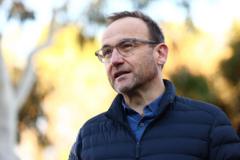Adam Bandt, the leader of Australia's Green Party, has officially conceded defeat in the Melbourne seat after a closely contested electoral race. His loss marks a significant shift for the party, which he had represented since 2010. Bandt extended his congratulations to newly-elected Labor candidate Sarah Witty, as Australia's political landscape transformed with the Labor party's recent landslide victory over the Liberal-National Coalition.
Despite securing the highest number of votes in Melbourne, Bandt pointed to a complex web of influences that contributed to his loss, notably the redistribution of preference votes from both the Liberal Party and the far-right One Nation, following Australia's preferential voting system. “To win in Melbourne we needed to overcome Liberal, Labor and One Nation combined, and it's an Everest we've climbed a few times now, but this time we fell just short,” Bandt stated, reflecting on his campaign.
He also addressed the "Trump effect," which he identified as a major factor in shaping voter sentiment. Bandt compared the Coalition's PM candidate Peter Dutton to the former U.S. President, a comparison Dutton himself disputed; however, the narrative resonated with voters. Bandt believes that this perception drove a shift in support away from the Greens as voters sought to block Dutton's influence by voting for Labour instead. "People in Melbourne hate Peter Dutton, and with very good reason... Many wanted him as far away from power as possible. My initial take is some votes leaked away from us, as people saw Labor as the best option to stop Dutton,” he remarked.
Following his loss, Bandt took a moment to express gratitude toward Melbourne constituents for their support over the years, highlighting key accomplishments achieved during his tenure. He championed legislative success on issues such as marriage equality, the First Nations Voice to Parliament, and environmental protections.
Amid his reflections, he urged a paradigm shift in how climate change is reported in the media. “I want the media to stop reporting on climate as a political issue, and start thinking of it as if our country were being invaded. We should treat the climate crisis as if there was a war on,” he stated passionately, advocating for greater accountability from current and future governments.
As Bandt moves forward, he leaves behind a party with a heightened vote count and its strongest representation in parliament to date, signaling ongoing efforts in addressing pressing societal issues.





















